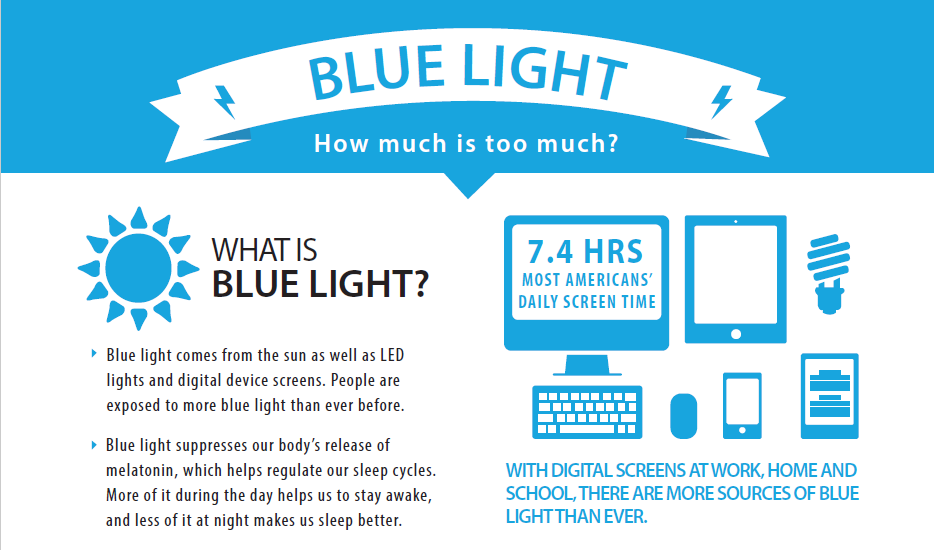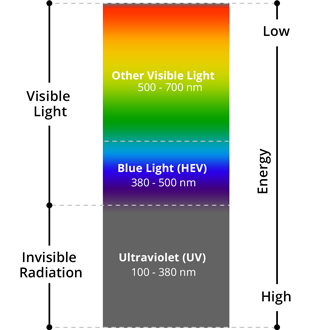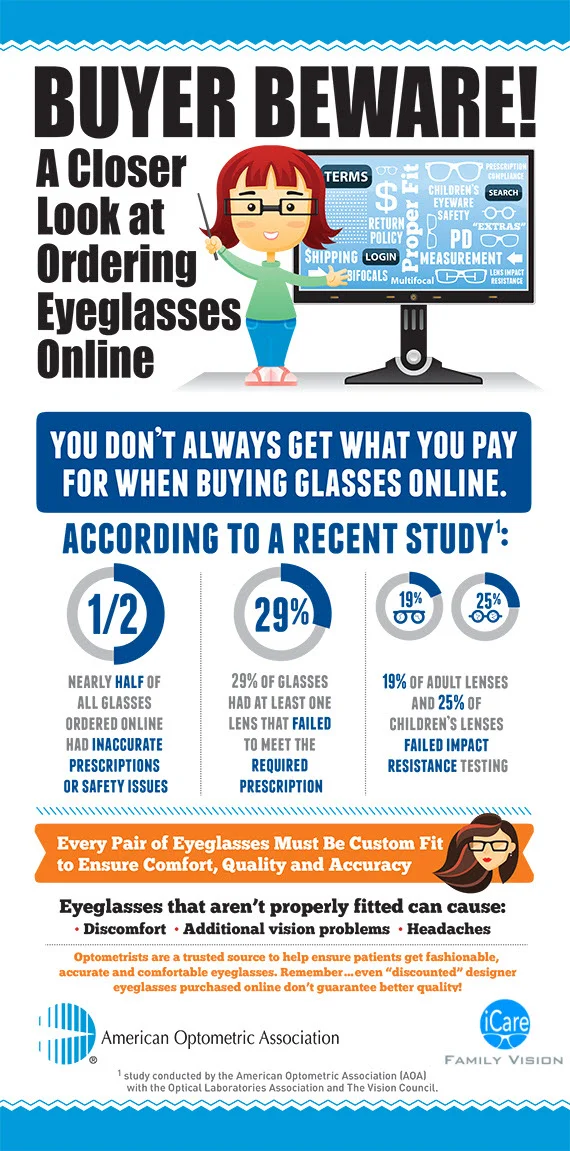Taking care of our skin from harmful light has always been a prime concern for people especially the over exposure to the harmful UV rays of the sun which can lead to sunburn and even skin cancer. Protecting our eyes from harmful light is also very important since apart from the UV rays that can wreak havoc on us, there is another light that we need to be aware of, blue light.
So what is the blue light and how does it affect our eyes?
Blue light comes from the sun as well as LED lights and digital device screens. Blue light is the part of the visible light spectrum which is known to produce a highest levels of energy. Blue light is the kind of light is characterized by a higher form of energy and thus it can affect deeper into our eyes when we least expect it. We must understand that our eyes are easily affected by this kind of light. Blue light suppresses our body's release of melatonin, which can affect our sleep cycles and can cause insomnia. Some studies have shown that when our eyes are overexposed to the blue light, it can have a negative effect on the eye’s retina that could lead to a vision disorder that usually shows up as we age. One of the vision disorders thought to be caused by blue light is called macular degeneration.
Although more research is needed to determine how much natural and man-made blue light is harmful to the retina, many eye care providers are concerned that the added blue light exposure from computer screens, smartphones and other digital devices might increase a person's risk of macular degeneration later in life.
Can Blue Light Be Harmful?
Two of the most obvious and harmful effects of blue lights to our eyes are macular degeneration as well as digital eye strain. As we have mentioned earlier, the blue light is known to reach deeper into the eyes. Such instance badly affects the retina’s sensitive cells which later on leads to macular degeneration when we get older.
It is an unfortunate fact, as well that the sources of blue light are some of the things that we love to use and we have been using for almost every day. Some of these include flat screen TVs, computers, mobile phones, and other digital devices like iPads and tablets.
Another thing which makes the blue light a problem for our eyes is that digital eye strain is very common nowadays in a generation of so many digital devices such as mobile phones and tablets. What the blue light is known to emit is a scattered energy instead of a focused energy. And our eyes are more susceptible to the scattered light which leads to digital eye strain.
What can be done to reduce exposure to blue light?
Optometrists highly suggest that in order to combat the degenerative effects of the blue light the easiest solution is getting blue filtering or yellow tinted lenses. These lenses can be very helpful since it can reduce the amount of discomfort that can be derived from prolonged staring exsposure to blue light. These are also helpful in limiting the exposure of our eyes to a safer level of these lights.
Other options to help reduce the amount of blue light exposure include digital device filters, and computer eye glasses with blue blocking lenses by BluTech.
Make sure to schedule an eye exam appointment today with Dr. Johnson at iCare Family Vision to discuss Blue Light and lenses that can help reduce the effect of this light.





